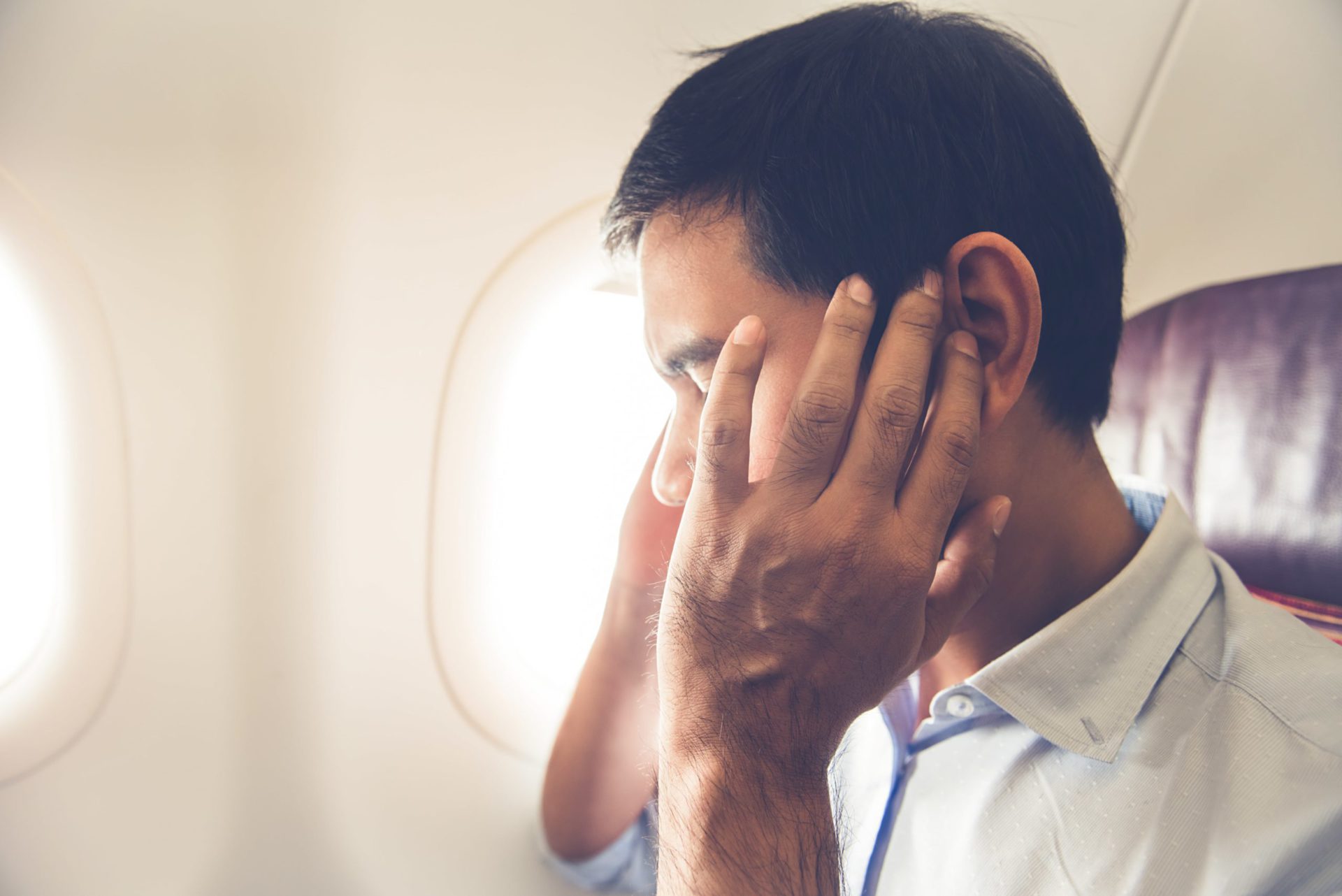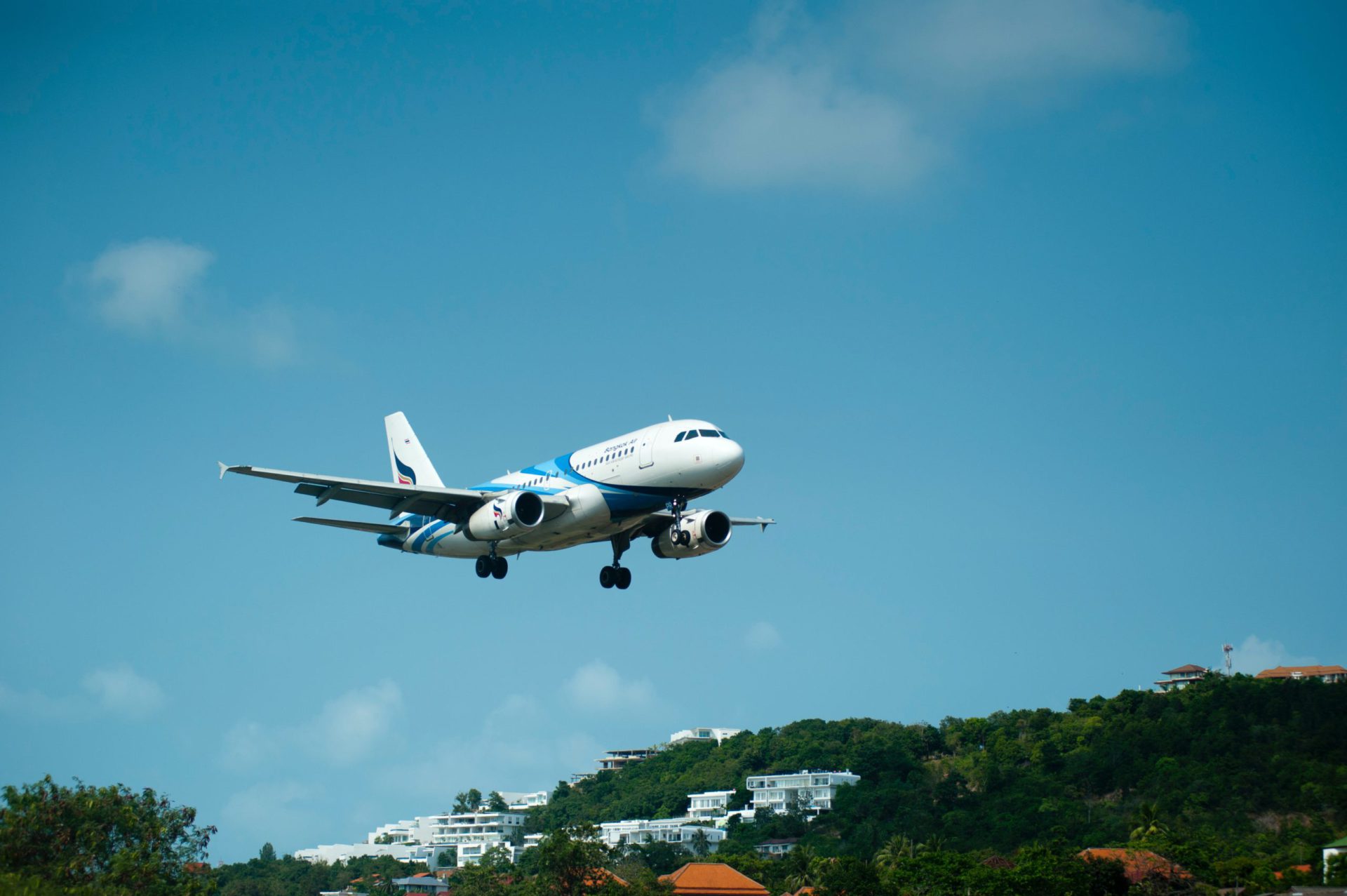
Airplane ear pain, also known as barotrauma, is a common discomfort experienced by many air travelers. It is caused by the rapid changes in air pressure that occur during takeoff and landing. The condition is characterized by a feeling of pressure or fullness in the ears, and in some cases, it can cause pain, dizziness, and even hearing loss
Understanding Airplane Ear Pain: Causes and Symptoms
Airplane ear pain is caused by the rapid changes in air pressure during takeoff and landing. It can cause pressure, fullness, pain, dizziness, and even hearing loss in some cases.
Factors like age, health, and altitude can affect the severity of symptoms. Those with allergies, sinus infections, or a cold may be more susceptible to airplane ear pain due to congestion.
Symptoms can vary in severity and duration, and can persist for hours after the flight. Not everyone experiences airplane ear pain, but it’s important to identify risk factors to prevent discomfort.
The Science Behind Airplane Ear Pain: How Air Pressure Affects Your Ears
Airplane ear pain occurs when the air pressure in the middle ear and outside the ear are not balanced. During takeoff and landing, the pressure outside the ear changes rapidly, while the pressure inside the ear remains the same. This causes discomfort and sometimes pain.
The Eustachian tubes, which connect the middle ear to the back of the nose and throat, are responsible for regulating air pressure in the ear. When the pressure outside the ear changes, the Eustachian tubes must adjust to balance the pressure.
If the Eustachian tubes are blocked or congested, they may not be able to adjust properly, leading to discomfort or pain. Factors like allergies, sinus infections, or a cold can cause congestion, making it more difficult to equalize pressure.
Several techniques can help equalize the pressure, including swallowing, yawning, or chewing gum. In some cases, specialized earplugs or decongestants may be necessary.
Understanding the science behind airplane ear pain and how to equalize pressure can help prevent discomfort and make air travel more enjoyable.
How to Relieve Airplane Ear Pain: Home Remedies and Over-the-Counter Treatments
There are several home remedies and over-the-counter treatments that can help relieve airplane ear pain. Here are some effective options:
- Swallowing, yawning, or chewing gum can help equalize pressure in the ear and relieve discomfort.
- Using specialized earplugs, such as filtered earplugs or earplugs with pressure-regulating filters, can help regulate air pressure in the ear.
- Decongestants, such as pseudoephedrine, can help relieve congestion in the nasal passages and Eustachian tubes, making it easier to equalize pressure.
- Nasal saline sprays or drops can help moisturize the nasal passages and thin out mucus, making it easier to clear congestion and equalize pressure.
- Pain relievers, such as acetaminophen or ibuprofen, can help relieve pain and discomfort.
It’s important to note that some treatments may not be suitable for everyone, particularly those with certain health conditions or who are taking certain medications. It’s always a good idea to talk to a healthcare provider before trying any new treatments.

When to Seek Medical Help for Airplane Ear Pain
In most cases, airplane ear pain can be relieved with home remedies and over-the-counter treatments. However, there are some cases where medical attention may be necessary. Here are some signs that you should seek medical help for airplane ear pain:
- Severe or prolonged pain: If the pain is severe or lasts for more than a few hours after the flight, it’s important to see a healthcare provider.
- Hearing loss: If you experience any hearing loss or muffled hearing after the flight, it’s important to seek medical attention.
- Dizziness: If you experience severe or prolonged dizziness, it’s important to seek medical attention.
- Bleeding or discharge from the ear: If you notice any bleeding or discharge from the ear, it’s important to see a healthcare provider.
These symptoms may indicate a more serious condition, such as a ruptured eardrum or infection, that requires medical attention. It’s important to seek prompt medical care to prevent further complications.
Tips for Preventing Airplane Ear Pain: Before, During, and After Your Flight
Preventing airplane ear pain is easier than trying to relieve it once it has already started. Here are some tips to help prevent airplane ear pain:
Before your flight:
- Stay hydrated: Drink plenty of water to keep your body hydrated.
- Use a decongestant: If you have a history of ear pain during flights, talk to your healthcare provider about using a decongestant before your flight.
- Avoid alcohol and caffeine: These can dehydrate you and make it more difficult to equalize pressure in the ear.
During your flight:
- Equalize pressure: Swallow, yawn, or chew gum to equalize pressure in the ear.
- Use earplugs: Specialized earplugs can help regulate air pressure in the ear and prevent pain.
- Stay awake during descent: If you can, stay awake during the descent to continue equalizing pressure.
After your flight:
- Stay hydrated: Drink plenty of water to keep your body hydrated.
- Avoid smoking: Smoking can irritate the Eustachian tubes and make it more difficult to equalize pressure in the ear.
- Avoid air travel if you have a cold or sinus infection: These conditions can make it more difficult to equalize pressure and increase the risk of developing ear pain.
By following these tips, you can prevent airplane ear pain and make your air travel experience more comfortable. If you do experience pain, it’s important to address it promptly with home remedies or medical attention if necessary.
What to Expect During a Flight with Airplane Ear Pain

If you experience airplane ear pain during a flight, it’s important to know what to expect and how to manage the pain. Here are some things to keep in mind:
- The pain may start during takeoff or landing: This is when the pressure changes are the most significant, and you may experience the most pain. Be prepared to manage the pain during these times.
- The pain may last for a few hours: It’s common for airplane ear pain to persist for a few hours after the flight. Be prepared to use home remedies or seek medical attention if necessary.
- You may experience other symptoms: In addition to pain, you may experience muffled hearing, dizziness, or a feeling of fullness in the ear.
- You can manage the pain: Use home remedies, over-the-counter treatments, or medical attention to manage the pain as needed.
Remember that airplane ear pain is a common and usually minor condition. By being prepared and knowing how to manage the pain, you can still have a comfortable and enjoyable flight.
Dealing with Airplane Ear Pain: Insights from Frequent Flyers
Frequent flyers often have firsthand experience dealing with airplane ear pain. Here are some insights from frequent flyers on how to manage the pain:
- Be prepared with home remedies: Many frequent flyers swear by home remedies like chewing gum, swallowing frequently, or using earplugs to prevent pain. Find what works best for you and be prepared with these remedies during your flight.
- Use over-the-counter treatments: Over-the-counter pain relievers or decongestants can be effective for managing airplane ear pain. Talk to your healthcare provider before taking any new medications.
- Consider flying with a cold or sinus infection: Many frequent flyers suggest avoiding air travel if you have a cold or sinus infection. If you must fly, talk to your healthcare provider about using decongestants before your flight.
- Stay informed: Airlines may have specific policies or procedures for managing airplane ear pain. Check with your airline before your flight to see if they have any recommendations or accommodations.
Natural Remedies for Airplane Ear Pain Relief
If you prefer natural remedies or want to try alternative treatments for airplane ear pain, there are several options available. Here are some natural remedies to consider:
- Essential oils: Some essential oils, like peppermint or eucalyptus, have anti-inflammatory properties that may help reduce ear pain. Add a few drops to a carrier oil, like coconut or almond oil, and gently massage around the affected ear.
- Warm compress: A warm compress applied to the affected ear can help reduce pain and pressure. Use a warm towel or heating pad, making sure not to overheat.
- Onion juice: Onion juice has been used for centuries as a natural remedy for ear pain. Cut an onion in half, microwave it for a few seconds, and then place it over the affected ear for a few minutes.
- Garlic: Garlic has natural antibacterial properties and can help reduce inflammation. Crush a garlic clove and mix with olive oil, then apply a few drops to the affected ear.
Remember to always talk to your healthcare provider before trying any new natural remedies or alternative treatments. While these remedies may offer relief, they may not be suitable for everyone.
The Link Between Airplane Ear Pain and Sinus Issues
Sinus issues, like allergies, colds, or sinus infections, can increase the risk of experiencing airplane ear pain. When sinus tissues are swollen or blocked, it can prevent air from flowing through the sinuses and Eustachian tubes properly. This can cause pressure to build up, leading to pain and discomfort.
Here are some tips for managing sinus issues and reducing the risk of airplane ear pain:
- Use saline nasal sprays or rinse: Saline nasal sprays or rinses can help moisten and clear the nasal passages, reducing inflammation and congestion.
- Use decongestants: Decongestants can help reduce swelling and promote better airflow through the sinuses and Eustachian tubes.
- Take antihistamines: If you have allergies, antihistamines can help reduce inflammation and congestion.
- Talk to your healthcare provider: If you have chronic sinus issues, talk to your healthcare provider about long-term treatment options.
By managing sinus issues and taking preventative measures, you can reduce the risk of experiencing airplane ear pain. Remember to always talk to your healthcare provider before trying any new remedies or treatments.

 Airplane ear pain, also known as barotrauma, is a common discomfort experienced by many air travelers. It is caused by the rapid changes in air pressure that occur during takeoff and landing. The condition is characterized by a feeling of pressure or fullness in the ears, and in some cases, it can cause pain, dizziness, and even hearing loss
Airplane ear pain, also known as barotrauma, is a common discomfort experienced by many air travelers. It is caused by the rapid changes in air pressure that occur during takeoff and landing. The condition is characterized by a feeling of pressure or fullness in the ears, and in some cases, it can cause pain, dizziness, and even hearing loss

 If you experience airplane ear pain during a flight, it’s important to know what to expect and how to manage the pain. Here are some things to keep in mind:
If you experience airplane ear pain during a flight, it’s important to know what to expect and how to manage the pain. Here are some things to keep in mind:







